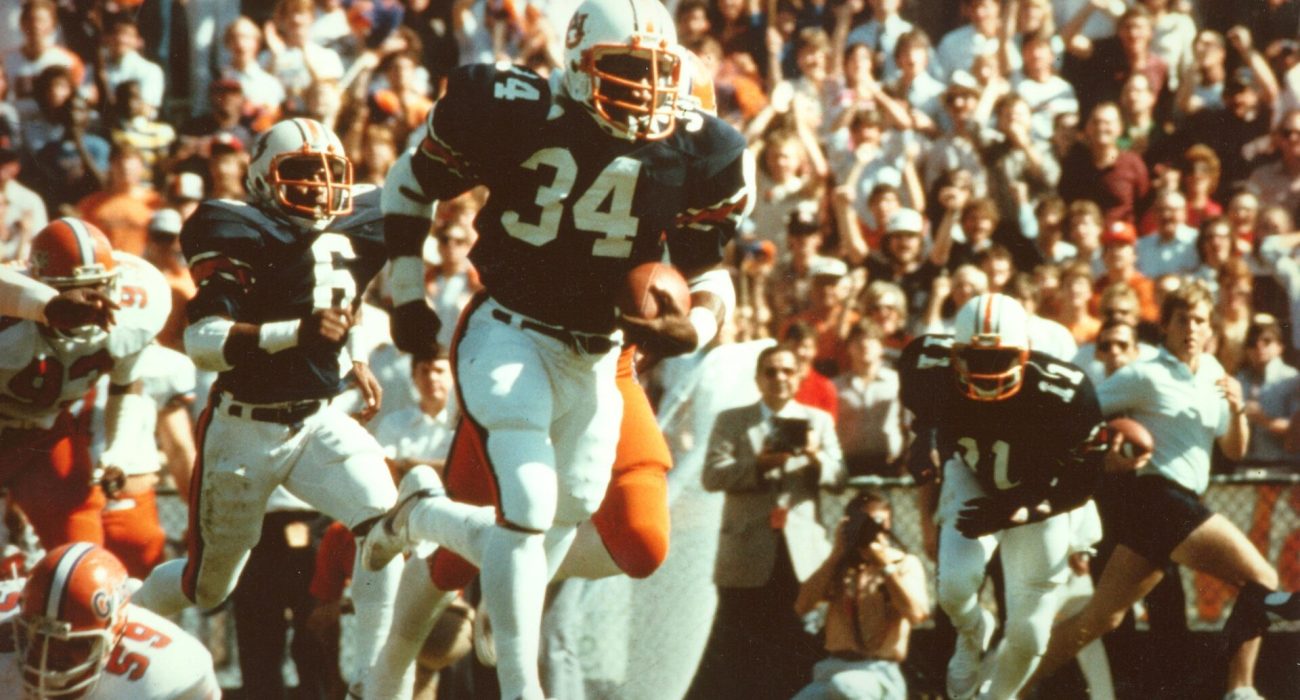Recent Features
From the Crossroads to the Cross

Bo Jackson had four memorable years at Auburn University. Each year brought a different set of challenges. But at the end of his college career, he gave us an inspirational message that somehow got lost along the way.
Continue reading this article and more from top writers, for only $9.99/mo.
Already a TALEGATE Subscriber? Log in here.
Talegate Featured Athlete – Cash Harrell, Opp High School
July 1, 2025
No Comments
Cash Harrell is adamant that he wants to go to The University of Alabama to one day become an electrical engineer. He says he’s not …


